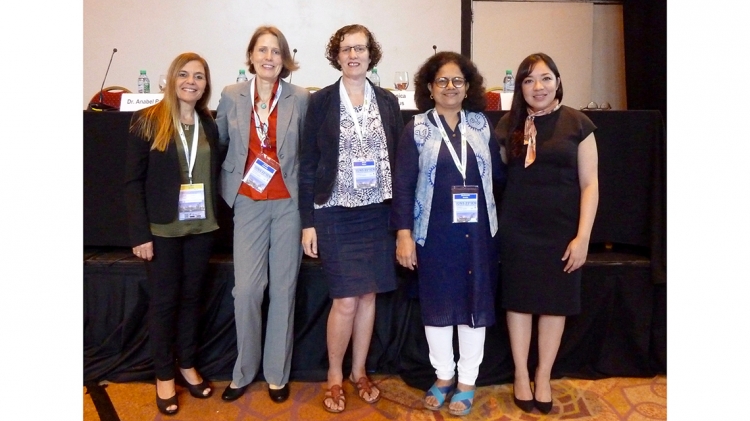Preliminary results and findings from several IAEA nutrition projects were shared at the 21st quadrennial International Congress of Nutrition in Buenos Aires, helping to build awareness among the international nutrition community of the important role of nuclear techniques in generating accurate and timely data.
The IAEA sponsored the participation of several technical cooperation project counterparts at the Congress, who presented posters on their projects. Sponsored participants included counterparts from an IAEA regional technical cooperation project on infant and young child nutrition in the Asia and the Pacific region[1], and from a national project in Morocco on iron bioavailability from wheat flour[2]. In addition, posters on IAEA-supported studies in Haiti, Cuba and Kenya were displayed.
Cornelia Loechl, Head of the Nutrition Section in the IAEA Division of Human Health, organized two symposia, and over 100 participants attended each of the two hour events. The first symposium, on ‘Objective Assessment of Breastfeeding Practices’, demonstrated how an objective assessment of exclusive breastfeeding, using a stable isotope technique, contributes to improved evidence on exclusive breastfeeding rates. These rates are generally overestimated when based simply on maternal recall. Other new findings from IAEA projects presented at the symposium included the discovery that the frequency of breastfeeding is not associated to the intake of human milk volumes in India, and that 6 months of exclusive breastfeeding is related to higher fat-free mass of infants at 12 months of age in South Africa.
The second IAEA symposium, on ‘Nutritional Challenges in the Elderly’, presented the prevalence and functional impact of the loss of muscle mass and strength (known as sarcopenia), nutritional and lifestyle factors that contribute to sarcopenia, and the diagnosis and prevention of sarcopenia.
Efforts made by the IAEA in standardizing the techniques for the early diagnosis of sarcopenia through a regional technical cooperation project in Latin America[3] were highlighted, and the first results on muscle function from this project were presented. It was recommended for the early diagnosis of sarcopenia to evaluate muscle function using handgrip strength and walking tests. Once the results on body composition and the relation of fat-free mass to the loss of muscle functionality are available, more comprehensive guidelines for the early diagnosis of sarcopenia in Latin America can be generated.






